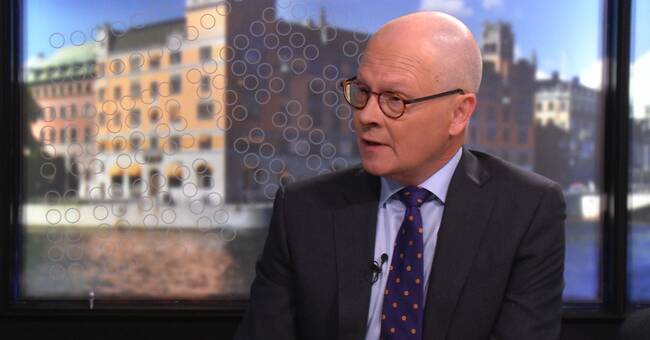During the spring, it was striking how the parties in the Riksdag cooperated to quickly club through various measures to deal with the corona crisis.
But that unity is just a memory today.
On Monday, the government presented the autumn budget, historically in its scope with as much as SEK 105 billion in investments to restart the Swedish economy and save jobs.
Minister of Finance Magdalena Andersson (S) was pleased when she presented the budget.
And of course the Social Democrats have gotten through most of their priorities.
Large financial contributions to welfare, increased pensions and continued increase in unemployment insurance are perhaps the most important parts.
S is forced to pass several tax cuts
But in order to bring in the Center Party and the Liberals, the Social Democrats have also been forced to let through tax cuts that they have previously been fiercely opposed to.
One such measure is reduced employer contributions for young people, which the Center Party has pushed through, another is a new variant of the employment tax deduction, which the Liberals have pushed in the budget negotiations.
The Green Party can also boast of investments in the climate, including a new deduction for green investments.
Not unexpectedly, spokesman Per Bolund calls the budget a "game changer" for the climate.
All parties involved in the negotiations thus appear to be extremely pleased on this day.
And of course.
Never before have four parties had such a thankful task as being able to set aside SEK 105 billion in a single budget.
Thus, there has been room for everyone to push through their heart issues, preferably with reference to the pandemic.
"An attempt to keep the January parties happy"
Therefore, this budget should also be seen as an attempt to keep the January parties themselves in a good mood.
For Prime Minister Stefan Löfven, it is an important ingredient in the ambition to try to connect with the two bourgeois center parties in the long term.
By keeping them in a good mood, Löfven hopes to be able to deepen his January cooperation, and in the long term keep the parties on the right in Swedish politics away from power.
It is also likely to be difficult to find direct losers in this budget, where a historic billion-dollar roll means a plus for most people involved, companies as well as employees and pensioners.
But the verdict of history can still be harsh.
If economic development is worse than the government predicts, the budget risks paving the way for long-term deficits in the Swedish economy.
The way back to balance and surplus in the government budget is based on the fact that no new crises occur in the near future, that the world economy picks up speed and that the corona pandemic is essentially a closed chapter.
Historical loan amounts
This year's budget bill may also be the end of the long period of tight economic budgetary policy that followed the crisis of the 1990s.
With reference to the corona pandemic, historical sums are now being borrowed to implement the government's measures.
For those who have once violated the strict requirements of budgetary discipline, it can be tempting to continue on the path taken.
The opposition in the Riksdag was also harsh in its criticism of the government's budget during Monday's debate.
The Left Party criticized the government for borrowing money rather than raising taxes for the well-to-do.
The moderates, on the other hand, accused the government of indebting the Swedish people without solving the problems of crime and unemployment.
A recurring theme in the critique is that the budget is certainly historical in its scope, but that it is diverse both in terms of content and focus.
So even though the parties agreed on a lot this spring when the acute crisis was fought, the disagreement today is significant about which path Sweden should take to restart the economy, hold back unemployment and fight crime.

